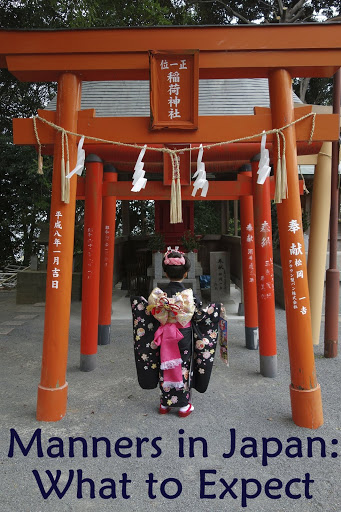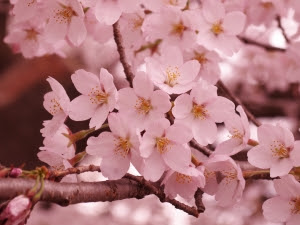To fully enjoy all that there is to offer in Japan, it is essential to do a bit of research on the customs and traditions of this interesting part of the world. Getting to grips with being polite, table manners and general customs will stop any unintended offence and a bad reputation for western travellers. So as you head to Japan, leave your ignorance behind you as you open yourself up to the Japanese culture.

Here is a guide to all the essentials, so you can feel prepared for the cultural differences that you are about to face.
A fact you may not be aware of
• The beautiful blossoms of Japan known as Ohanami are only in bloom for a precious number of weeks, sometimes only a week in certain areas. If you have dreams of walking among the blossoms, then be sure to check out the cherry blossom calendar here.

Being Polite - Manners in Japan
• While in Japan, you will see that people point to their nose when referring to themselves. This is because pointing at people and objects is considered rude; remember to point at your nose and not your body.
• When someone is in a hurry and needs for people to move out of the way, the custom is to press the heel of your hand against your chest (like a fin) as you move through the crowd. Businessmen do this frequently if in a hurry.
• It is customary to remove your shoes when you enter certain parts of a restaurant, a carpeted room, and someone’s home. So be sure to wear clean, matching socks that you would not be embarrassed about showing off.
• Tipping is not required in the usual areas of restaurant bills, taxis, and bars so do not feel as though you are being impolite. There is no guilt involved either, as the service workers of Japan are paid a living wage.
• In Japanese culture, there is an emphasis on the good of the group instead of the western importance placed on the individual. This means that standing out is not favoured well, so if you are part of a group be wary of the noise you are making and the level of attention you are attracting. We do not want to perpetuate the assumption that all westerners are loud.
• It is considered vulgar to talk on the phone while walking as well as eating while walking.
• To be respectful while addressing people, you should add san to the end of their surname or sama if you are being particularly respectful.
• The bow in Japan is well known and to do it right takes very little effort. For tourists, a simple nod of the head or attempt to bend at the waist would be sufficient. The degree of inclination depends on the position of the person you are speaking to and the circumstance you are in.

Table manners
• Whether at a street market or about to tuck in to a five-course meal, be sure to say itadakimasu, which means ‘I will receive’.
• Slurping your noodles is a good thing and is even considered to be a sign of enjoyment.
• A wet cloth will usually be given at Japanese restaurants – use it to wipe your hands before you eat and then neatly fold it and place to the side. Never use it to wipe your mouth.
• Gesture to menu items with an outstretched hand - it is considered rude to point to objects.
• Wave your hand in front of your nose as if you have smelt something bad when you have had enough of food.
Things that might startle you
• The toilet situation in Japan can take people off guard, as there is a big juxtaposition between very old methods and modern luxury. Be prepared for both a stall with a hole in the floor, and one with a heated toilet seat, bidet, and musical accompaniment.
• When you enter a shop or restaurant, you will be greeted by the bellowing wail of irasshaimase! But do not fear, as this is not an angry gesture but a way to greet you and to notify the other staff that a customer is here. It is loosely translated as: ‘I am here, ready to serve you’.
• Commuters will walk around with surgical masks on for fear of passing on a cold. Calling in sick for a common cold is unheard of and the Japanese work ethic means that people stock up on Vitamin C tablets, put on a mask, and head to work as usual.
